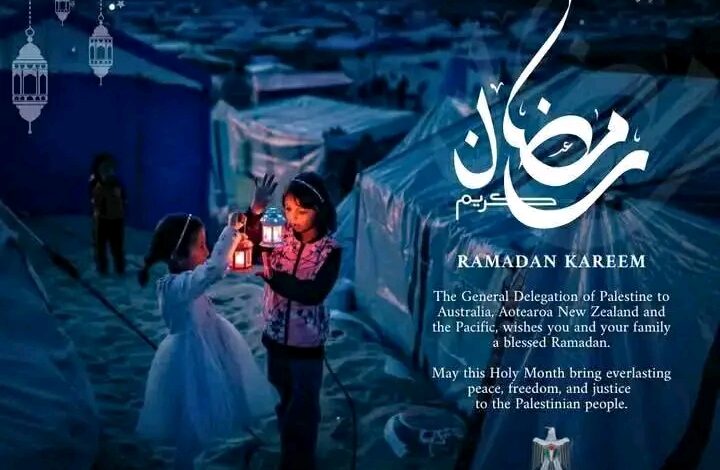The Importance of Ramadan??

The Importance of Ramadan in the Light of the Qur’an
Ramadan, the ninth month of the Islamic lunar calendar, holds a special significance for Muslims worldwide. It is considered the holiest month, a time for fasting, reflection, and increased devotion to Allah. The importance of Ramadan is deeply rooted in the Qur’an, the holy book of Islam, which offers profound guidance and wisdom on the role of this month in the lives of Muslims. Through fasting, prayer, self-discipline, and increased worship, Ramadan provides an opportunity for spiritual growth, purification, and strengthening one’s connection with Allah. This article will explore the importance of Ramadan in the light of the Qur’an, highlighting the theological, spiritual, and social dimensions of the month.

1. The Revelation of the Qur’an during Ramadan
One of the most significant reasons Ramadan holds such importance is that it was during this month that the Qur’an was revealed to the Prophet Muhammad (peace be upon him). Allah mentions this in Surah Al-Baqarah (2:185), where He says:
“The month of Ramadan [is that] in which was revealed the Qur’an, a guidance for the people and clear proofs of guidance and criterion.”
This verse emphasizes that Ramadan is not just a time for fasting but also a time to reflect on the Qur’an as the ultimate source of guidance for humanity. The Qur’an itself describes Ramadan as a period when Allah brought down His divine message to guide people in all aspects of life. Muslims believe that fasting during this month helps them connect with the Qur’an in a deeper, more meaningful way, as they dedicate themselves to worship, reading, and reflecting on its verses.
2. Fasting as a Spiritual Purification
One of the core practices of Ramadan is fasting, where Muslims refrain from eating, drinking, and engaging in other physical desires from dawn until sunset. The Qur’an explicitly mentions the obligation of fasting in Surah Al-Baqarah (2:183):
“O you who have believed, decreed upon you is fasting as it was decreed upon those before you that you may become righteous.”
This verse highlights that fasting during Ramadan is not just a physical act of abstaining from food and drink, but a spiritual process intended to purify the soul. Through fasting, Muslims develop self-discipline and strengthen their willpower, learning to control their desires and weaknesses. The ultimate goal of fasting is to attain taqwa (God-consciousness or piety), which is the state of being constantly aware of Allah in all aspects of life. By abstaining from worldly pleasures, Muslims are reminded of their dependence on Allah for sustenance and are encouraged to develop empathy for the less fortunate.
The Qur’an also mentions the concept of “sabr” (patience), which is closely tied to fasting. The act of fasting requires immense patience and self-control. It serves as a tool for cultivating a steadfast heart, making it easier for one to endure life’s challenges with faith and trust in Allah.
3. The Reward of Ramadan and Forgiveness of Sins
Another significant aspect of Ramadan highlighted in the Qur’an is the immense reward and forgiveness associated with fasting during this sacred month. In Surah Al-Baqarah (2:186), Allah says:
“And when My servants ask you concerning Me, indeed I am near. I respond to the invocation of the supplicant when he calls upon Me.”
This verse reassures believers that during Ramadan, Allah is especially close to His servants and readily accepts their supplications. Muslims believe that Ramadan offers a special opportunity to seek forgiveness for past sins, with the hope that Allah will pardon them. The Prophet Muhammad (PBUH) said:
“Whoever fasts Ramadan with faith and seeking reward from Allah will have his past sins forgiven.”
The Qur’an emphasizes that this month is a time when the gates of mercy are open wide, and the gates of hell are closed. Through fasting, prayer, and seeking forgiveness, believers can purify their hearts and attain Allah’s mercy.
4. The Night of Decree (Laylat al-Qadr)
Among the most significant nights of Ramadan is Laylat al-Qadr, the Night of Decree, which is mentioned in the Qur’an as being better than a thousand months. Allah says in Surah Al-Qadr (97:3):
“The Night of Decree is better than a thousand months.”
This night, which falls within the last ten days of Ramadan, is regarded as a time of profound spiritual significance. Muslims believe that on this night, the Qur’an was first revealed, and Allah’s mercy and blessings are abundant. The Prophet Muhammad (PBUH) recommended seeking Laylat al-Qadr during the odd nights of the last ten days of Ramadan, urging Muslims to engage in extra prayers, supplication, and acts of worship during this time.
It is believed that Laylat al-Qadr offers an opportunity for the forgiveness of sins and the fulfillment of righteous supplications. The Qur’an encourages believers to increase their devotion during this sacred time to earn Allah’s favor and blessings.
5. The Importance of Charity and Social Responsibility
Ramadan is also a time for social responsibility and acts of charity. The Qur’an stresses the significance of giving to those in need, and Muslims are encouraged to be more charitable during this month. In Surah Al-Baqarah (2:177), Allah commands believers to give zakat (obligatory charity) and sadaqah (voluntary charity):
“It is not righteousness that you turn your faces toward the East or the West, but righteousness is in one who believes in Allah, the Last Day, the Angels, the Book, and the Prophets, and gives his wealth, in spite of love for it, to relatives, orphans, the needy, the traveler, those who ask [for help], and for freeing slaves.”
During Ramadan, Muslims are particularly encouraged to increase their charitable activities. The fast serves as a reminder of the hardships faced by the less fortunate, encouraging Muslims to give generously and alleviate the suffering of others. Through the practice of Zakat al-Fitr (a form of charity given before the end of Ramadan), Muslims ensure that those in need can partake in the celebrations of Eid al-Fitr.
The act of charity during Ramadan also emphasizes the Qur’anic principle of community and mutual care. It strengthens the bond of solidarity among Muslims, fostering a sense of responsibility toward one another, especially those less fortunate.
6. Strengthening the Community through Collective Worship
Finally, Ramadan is a time for communal worship. Muslims come together for nightly prayers (Taraweeh), recite the Qur’an, engage in collective worship, and reflect on the teachings of Islam. The shared experience of fasting and praying during Ramadan strengthens the unity of the Muslim Ummah (community), creating a sense of belonging and mutual support.
The Qur’an encourages believers to engage in collective worship, particularly during Ramadan, where the sense of community is heightened. In Surah Al-Imran (3:103), Allah commands:
“And hold firmly to the rope of Allah all together and do not become divided.”
By coming together in worship and prayer during Ramadan, Muslims exemplify the concept of unity in faith and action, fostering a deeper sense of connection to each other and to Allah.
Conclusion
Ramadan is a month of spiritual reflection, purification, and devotion. The importance of Ramadan in the light of the Qur’an cannot be overstated. It is a time for Muslims to strengthen their faith, seek forgiveness, engage in charity, and unite in worship. Through fasting, prayer, and reflection on the Qur’an, Ramadan offers believers an opportunity to draw closer to Allah and purify their souls. It is a month filled with mercy, blessings, and rewards, where Muslims are encouraged to increase their acts of worship, compassion, and community. By understanding the teachings of the Qur’an regarding Ramadan, Muslims can deepen their spiritual connection and emerge from the month with a renewed sense of purpose and devotion.


